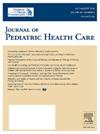1 型糖尿病青少年在 COVID-19 期间自我效能感的变化:定性研究。
IF 2.5
4区 医学
Q2 HEALTH POLICY & SERVICES
引用次数: 0
摘要
简介:本纵向定性研究旨在探讨 COVID-19 大流行对确诊为 1 型糖尿病(T1DM)的青少年的自我效能感和糖尿病管理的影响:我们对确诊为 1 型糖尿病的青少年(18 人)及其母亲照顾者(20 人)进行了两次半结构式访谈,历时 6-9 个月,以了解他们对青少年糖尿病管理能力的信心在大流行期间发生了哪些变化。访谈内容由四位评分者进行誊写和编码,以确保相互之间的可靠性:结果:出现了四个主题:预防不良血糖事件、有用的血糖趋势信息、改善糖尿病管理以及技术的缺点。大多数青少年(63%)表示,他们对自己在大流行期间管理糖尿病的能力增强了信心。其中一半以上的青少年已经在使用胰岛素泵,相当多的青少年(33%)更新了他们的胰岛素注射方法。青少年和护理人员都认为糖尿病设备是影响他们糖尿病管理自我效能的一个因素:讨论:研究结果表明了糖尿病管理在确诊为 T1DM 的青少年日常生活中的重要性,以及糖尿病设备在护理中断期间的潜在益处。本文章由计算机程序翻译,如有差异,请以英文原文为准。
Changes in Self-Efficacy During COVID-19 Among Adolescents With Type 1 Diabetes Mellitus: A Qualitative Study
Introduction
The purpose of this longitudinal, qualitative study was to examine the impact of the COVID-19 pandemic on self-efficacy and diabetes management among youth diagnosed with type 1 diabetes mellitus (T1DM).
Methods
We conducted two semi-structured interviews with adolescents diagnosed with T1DM (n = 18) and their maternal caregivers (n = 20) over 6–9 months, to understand how their confidence in the adolescent's ability to manage their diabetes changed during the pandemic. Interviews were transcribed and coded by four raters, establishing inter-reliability.
Results
Four themes emerged: Preventing Adverse Glycemic Events, Useful Glucose Trend Information, Improved Diabetes Management, and Downsides of Technology. Most adolescents (63%) reported increased confidence in their ability to manage diabetes during the pandemic. Over half of these adolescents were already using an insulin pump, and a substantial number (33%) updated their insulin delivery method. Both adolescents and caregivers cited diabetes devices as a factor in their self-efficacy for diabetes management.
Discussion
Findings illustrate the importance of diabetes management in the daily lives of adolescents diagnosed with T1DM, and the potential benefits of diabetes devices during disruptions to care.
求助全文
通过发布文献求助,成功后即可免费获取论文全文。
去求助
来源期刊

Journal of Pediatric Health Care
NURSING-PEDIATRICS
CiteScore
3.40
自引率
10.70%
发文量
140
审稿时长
24 days
期刊介绍:
The Journal of Pediatric Health Care, the official journal of the National Association of Pediatric Nurse Practitioners, provides scholarly clinical information and research regarding primary, acute and specialty health care for children of newborn age through young adulthood within a family-centered context. The Journal disseminates multidisciplinary perspectives on evidence-based practice and emerging policy, advocacy and educational issues that are of importance to all healthcare professionals caring for children and their families.
 求助内容:
求助内容: 应助结果提醒方式:
应助结果提醒方式:


